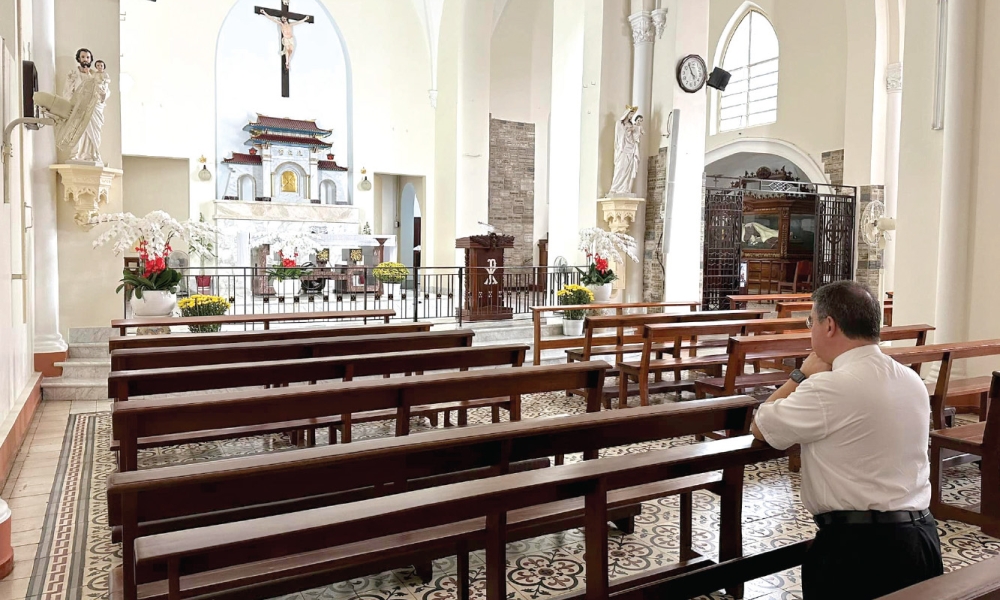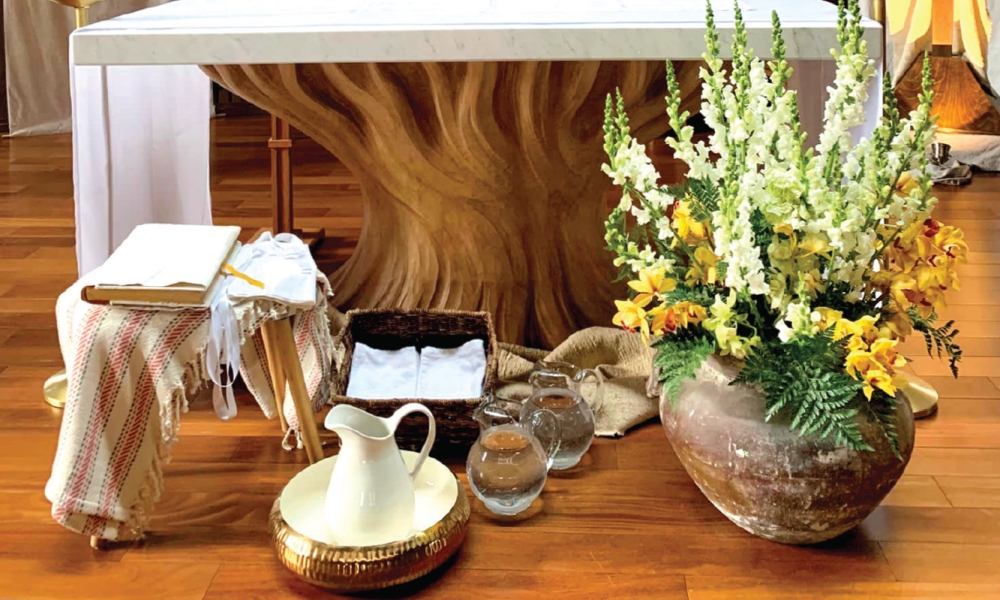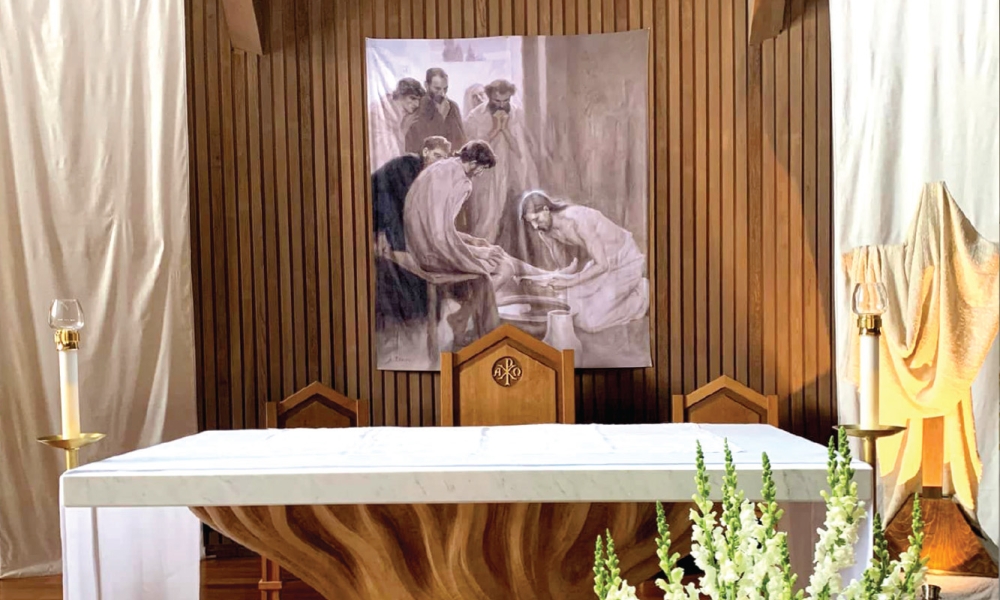
Dear Brothers and Sisters in Christ - Spring 2024
Dear Brothers and Sisters in Christ,
One of the six priorities in our Diocesan Pastoral Plan is Faith Formation, which includes prayer. I wish to share with you some thoughts on prayer.
Dear Brothers and Sisters in Christ,
One of the six priorities in our Diocesan Pastoral Plan is Faith Formation, which includes prayer. I wish to share with you some thoughts on prayer.
St. Augustine says, “O God, you made us for yourself, and our hearts are restless until they rest in you.” As God made humanity in his image and likeness, we yearn for the transcendent – for what is true, good, and beautiful. God is the ultimate truth, good, and beauty, and so our hearts, minds, and souls yearn for God. Prayer is the mysterious encounter in faith and love with the one true God.
Most of us understand that maintaining any friendship requires work: it takes much communication, an open mind, forgiveness, flexibility, and love, among other things. Our relationship with God requires not just formal, liturgical prayer but also private and personal prayer as we foster our friendship with the Lord.
Most of us are familiar with formal, liturgical prayer, such as the Eucharist, but sometimes, we are less familiar and comfortable with informal prayer. There are various forms of prayer: formal/informal, communal/personal, prescriptive/spontaneous, and liturgical/devotional. The most important thing is that we encounter God in a personal way.
The Church teaches that the Eucharistic sacrifice of the Mass is the “source and summit” of our Faith. If it is the summit, then that means there are other experiences of prayer along the way that help lead us to the Eucharist. Many people pray the rosary as a devotion. It’s a beautiful, meditative prayer. As we repeat the Our Father and Hail Mary, the rosary allows us to meditate on the mysteries of Christ’s and Mary’s lives and on our own lives, asking God for his blessings.
The Catechism of the Catholic Church also outlines various forms of prayer: prayers of blessing and adoration, prayers of petition, intercession, thanksgiving, and praise (2626-2643). The Catechism also describes vocal prayer, meditation, and contemplation (2700-2719). These can be practiced privately, with family, or in a group. The Eucharist incorporates all these forms of prayer.
I personally like to spend time in quiet meditation early in the morning before the day gets too busy. I read and reflect on the Scriptures, especially the Psalms. Sometimes, I am simply present with God, allowing his love to penetrate my heart and mind. I pray for various concerns that weigh on my mind and heart, asking God for direction for healing for friends, family, and parishioners who are ill. I also try to be quiet and listen to God. Often, when I jog through the neighborhood, I pray the rosary, lifting up various intentions for our diocese.
I encourage all of us to spend time each day in prayer. If you don’t usually spend personal time in prayer, I encourage you to start with 5 minutes each day when you are open to God and practice a form of prayer that is comfortable to you. If you already spend time in prayer regularly, I encourage you to be sure that the prayer does not become simply rote or stale. Maybe try a new form of prayer. We should refresh our attitudes, so our hearts remain connected to our prayer.
We also live in an age with an abundance of resources to help us pray and places we can go when we need to withdraw from distractions, as you will read in this issue of The Valley Catholic.
St. Therese of Lisieux describes prayer thus: “For me, prayer is a surge of the heart; it is a simple look turned toward heaven, it is a cry of recognition and of love, embracing both trial and joy.”
Let us together encounter our loving God in prayer!
Bishop Oscar Cantu


